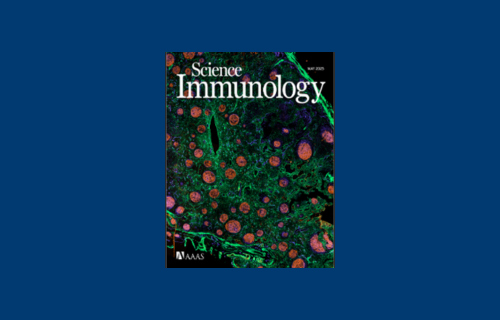New study provides important insights into the immunosuppressive microenvironment of ovarian cancer with potential implications for future therapy development
Monday, 12 May, 2025
Share

Recently published in Science Immunology, new collaborative research co-led by University College Dublin (UCD) has highlighted a novel pathway for immune modulation in high grade serous ovarian cancer (HGSOC), driven by uptake of certain kinds of fatty acids in immune cells. The publication, Uptake of lipids from ascites drives NK cell metabolic dysfunction in ovarian cancer, comes at a time when HGSOC continues to be a critical clinical challenge and arriving on the heels of World Ovarian Cancer Day, which took place on May 8.
Although HGSOC is the most common type of ovarian cancer, treatment options remain limited. With over 70% of patients presenting with metastatic disease and a 5-year survival rate of just 28%, this represents an urgent unmet clinical need. Many patients develop a buildup of fluid in the abdominal cavity, known as ascites, which has previously been linked to tumour growth and metastasis.
“Immunotherapy, which has revolutionised the care of some cancers, has not yielded the same positive results in ovarian cancer,” said Professor Donal Brennan, Professor of Gynaecology, Systems Biology Ireland, UCD School of Medicine and consultant at The Mater Hospital, Dublin, and senior author on the publication. “This study gives important insights into how intra-abdominal fluid that accumulates in women with ovarian cancer, referred to as ascites, can suppress local immune cell function. In particular, we demonstrated that the lipid or fat content impairs the function of many different immune cells, particularly natural killer cells. These findings offer a novel mechanistic insight into how we could develop new, more effective immunotherapeutics for ovarian cancer.”
In this explorative study of patients with HGSOC, an international team from across UCD, Trinity College Dublin, Harvard Medical School, Aix Marseille Univ and Princeton University, found that ascites is highly immunosuppressive for all lymphocyte subsets, despite being rich in many nutrients typically consumed by immune cells.
Using metabolomics and lipidomics, the team found that uptake of polar lipids from ascites was a central driver of Natural Killer (NK) cell dysfunction in ascites. Further investigation showed that the phospholipid transporter SR-B1 played a central role in this process and that by blocking this transporter, normal NK cell function could be restored. Although further analysis is required with larger sample sizes and complementary metabolomics/lipidomics approached, the results in this study could play a key role in the design of future immunotherapies for patients with HGSOC, as NK cells are known to defend against metastasis and improve prognosis in metastatic cancers.
The full paper can be found (opens in a new window)here.
Congratulations to all those involved in the explorative study:
Karen Slattery(1), Cong-Hui Yao(2), Eimear Mylod(1), John Scanlan(1), Barry Scott(1), Joseph Patrick Crowley(2), Orla McGowan(1), Gavin McManus(1), Martin Brennan(1,6), Katie O’Brien(1), Kate Glennon(3), Edward Corry(3), Ann Treacy(3), Rafael J. Argüello(4), Clair M. Gardiner(1), Marcia C. Haigis(2), Donal J. Brennan(3,5), Lydia Lynch(1,6,7,8).
- School of Biochemistry and Immunology, Trinity Biomedical Sciences Institute, Trinity College Dublin, Ireland.
- Department of Cell Biology, Blavatnik Institute, Harvard Medical School, Boston, MA, USA.
- UCD-Gynaecological Oncology Group, School of Medicine, Mater Misericordiae University Hospital, University College Dublin, Dublin, Ireland.
- Aix Marseille Univ, CNRS, INSERM, CIML, Centre d’Immunologie de Marseille-Luminy, Marseille, France.
- Systems Biology Ireland, UCD School of Medicine, Belfield, Dublin 4, Ireland
- Brigham & Women’s Hospital, Harvard Medical School, Boston, MA, USA.
- Department of Molecular Biology, Princeton University, NJ, USA.
- Ludwig Cancer Research Institute, Princeton Branch, USA.
For further information please contact Anna Truman, Marketing and Communication Manager, UCD School of Medicine: anna.truman@ucd.ie or Maryann Kelly, SEA, Administration & Communication, Systems Biology Ireland, UCD: maryann.kelly@ucd.ie.